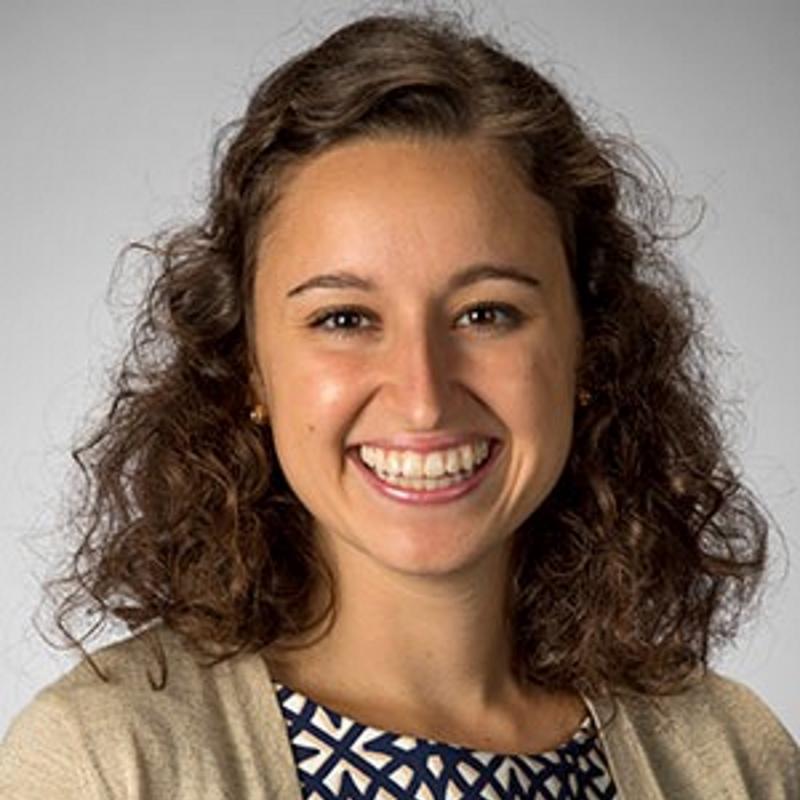Breadcrumb
Before embarking on the Master of Public Policy (MPP), Emily Mediate (MPP 2017) was working on a USAID-funded development research project related to HIV/AIDS in Uganda, as part of an international development fellowship.
The experience of working on a long-term project with multiple stakeholders allowed Emily to identify the gaps in her skillset. During the MPP, she was able to retrospectively apply what she was learning on the course to her experiences in Uganda: “All of a sudden, I had a language to describe the systems I had observed and the points of success and failure, and a framework through which to address some of the challenges we had faced.”
She applied for the MPP to gain the tools to address issues more strategically, and to understand how to work effectively within a multiple-stakeholder environment. Now working at the American Flood Coalition (AFC) – a non-profit organisation developing national solutions to increased flooding events – she feels well-equipped to go beyond simply identifying a problem, to understanding how to appropriately address it.
“I now take a more critical lens to my ideas, questioning which levers we can pull that match the policy issue we’ve identified, or where we will get the most support for our ideas.”
Studying the MPP in Oxford appealed to Emily because of the opportunity to examine public policy from an international perspective.
“Working in the US on domestic policy issues, it’s helpful to recall what I learnt on the MPP about how things are done elsewhere in the world, and to consider the lessons we can draw from other systems.”
Healthcare has always been Emily’s primary interest, and she saw working in public policy as a way to have a wider impact: “I wanted the scope of my work to extend beyond just one study or one project.” Her interest in public health began with sexual and reproductive health, particularly HIV/AIDS. “It’s an under-researched area so there’s a lot of room for policy improvement. The stigma around these issues is slowly reducing and people are becoming more open to finding solutions.”
During the MPP, Emily was keen to deepen her specialist knowledge, but she was also able to build a wider skillset.
“The MPP equips you with the tools to work across all public policy fields. During the applied policy modules, we learnt things like public budgeting and negotiating – I’ve used these skills a lot in my work.”
Emily is putting her budgeting skills into practice this year at AFC, as it faces its first audit. Her role as Chief of Staff straddles the domains of policy and advocacy, as well as project and people management. AFC is only a year and a half old, and Emily is excited by the opportunity to make the connections between flooding and public health challenges.
“As a fairly young organisation, there’s lots of space to inform the organisation’s strategy and figure out the policy areas we should be working on.”
Some of the connections between public health and flooding events are more immediate and obvious – such as diseases and housing instability – whereas others are more long term – such as mental health problems and infrastructure challenges. As well as exploring these specific policy issues, Emily is learning more broadly about the non-profit model and the challenges of growing a non-profit organisation: AFC currently employs around 14 people working mainly in a handful US states, but it is seeking to expand its work.
“It’s exciting to delve into the project of building a new organisation from the ground up.”
AFC works with local government actors to identify the issues they are facing – for example, a lack of funding for emergency response or building flood defences – and ladders those concerns up to the state and federal levels. “One of the fairly unique elements of AFC is that we’re able to able to have a deep understanding of the local issues, but also have the power to push for change at the national level.”
On the people management side of her job, Emily enjoys managing different projects and supporting junior staff. This element of her job has led her to reflect on the MPP’s final policy challenge, where collaboration and compromise was key to reaching a solution.
“I’ve become more collaborative and open as a result of my time on the MPP.”
Since graduating, Emily has valued being part of the constantly evolving Blavatnik School community. “People are always seeking to meet up or linking up people they know who are interested in similar fields. The connections I’ve made at Oxford continue to be meaningful in both a personal and professional capacity.”
Emily was a Rhodes Scholar
March 2020

